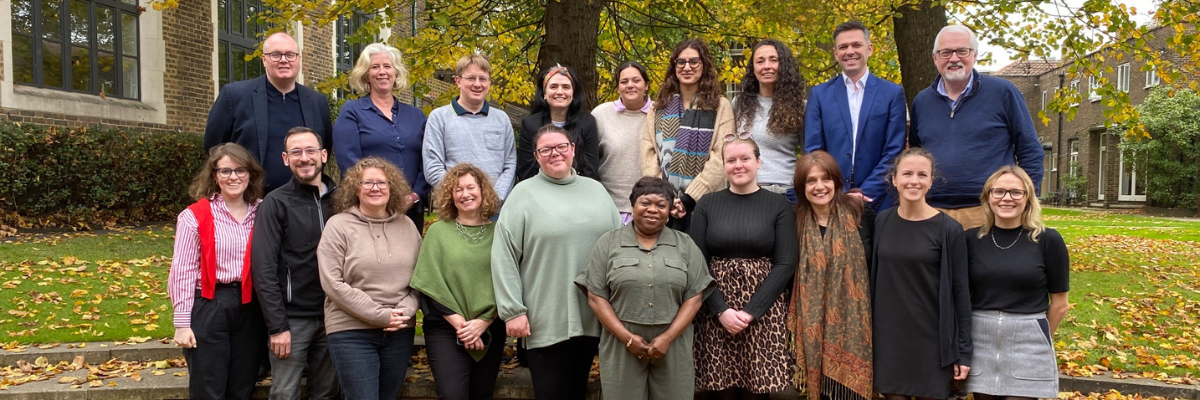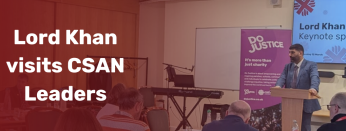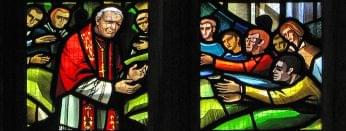From 21 to 23 October, the second cohort of our aspiring leaders course met for their third residential at the Royal Foundation of St Katharine in east London, our home from home for the course.
We were joined by some wonderful speakers who led us through a range of reflections, from trauma-informed leadership, the importance of developing youth leadership, to an introduction to Appreciative Inquiry research methods.
Claire Wilson, a trauma therapist and author (who also plays with Jo Boyce and CJM!) and Nikki Dhillon, also a therapist who works with Safe in Faith at Caritas Westminster, introduced us to the workings of the nervous system and our deep need to be safe and to belong. The implications of this for leadership were explored in some depth, especially what is happening to us and the effect we might be having on others when we are in a ‘hot’ or ‘cool’ state.
Rebecca Rathbone from Caritas Internationalis led an inspiring session of her work on developing youth leadership. So much of the Church’s wisdom, from the saints and indeed from Jesus himself, comes from young people. We were all challenged to look deeper into our own organisational cultures and consider some actions to promote the participation of youth.
Clare Watkins, from Roehampton University, led us into a consideration of the research method known as Appreciative Inquiry. This method is promoted by Caritas Europa, so it’s good for us to align with that. The AI approach sits well with our values since it begins by inviting us to discover the joy, the good news of what’s going on in our organisations and then dream of what might be possible to develop the strengths and design ways to make it happen. Participants were invited to undertake their own Appreciative Inquiry projects in their own settings.
The scenario on the final morning took the participants into a situation which is becoming all too real for Catholic organisations: a role play in which a senior team worked through the tensions of some in the charity wanting to downplay their Catholic identity in the hope of broadening their appeal. Many important points emerged, not least a deepening self-awareness of how we act and react in such situations.
The common thread running through all our sessions was how to create and sustain a healthy organisation. We paid attention to the personal and spiritual dimension of this with an invitation to all the participants to begin the day with Lectio Divina and end the day with an Examen, discerning in stillness where God was at work in us over the course of our time together.
In our final residential next March, also at St Katherine’s, we will invite the participants to present to the group, either on their AI research project or on what they have learned in the course of the programme. I’m looking forward to the wisdom that will be shared. It has been a joy to work with such committed and friendly people. A real bond has developed in the group. We will be looking next at life beyond the programme, how do we create a community of practice into the future?
If you’d like to find out more about the programme or think you might be interested in applying for Cohort 3, please contact me at raymond.friel@csan.org.uk
Raymond Friel
CEO, Caritas Social Action Network






